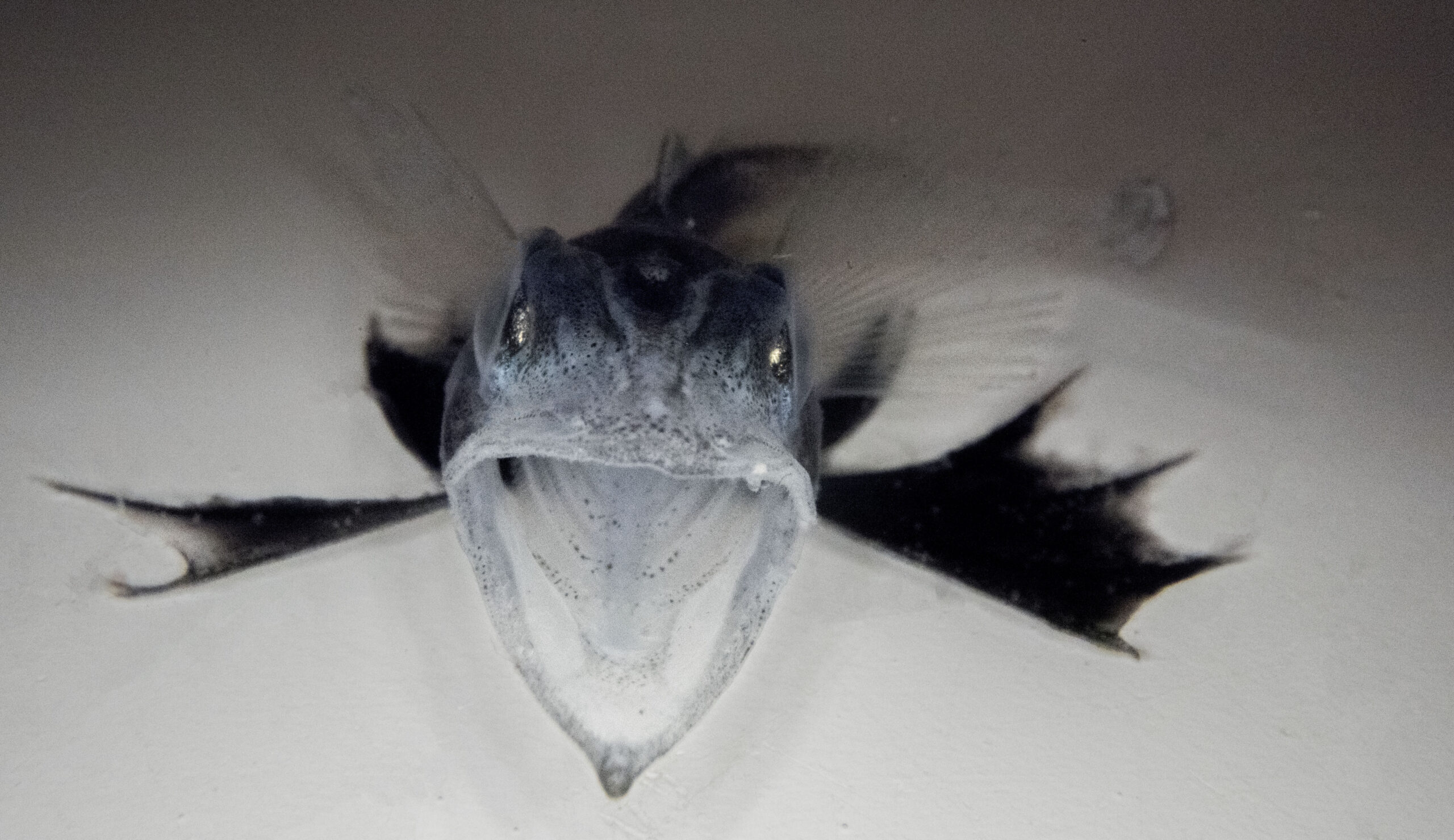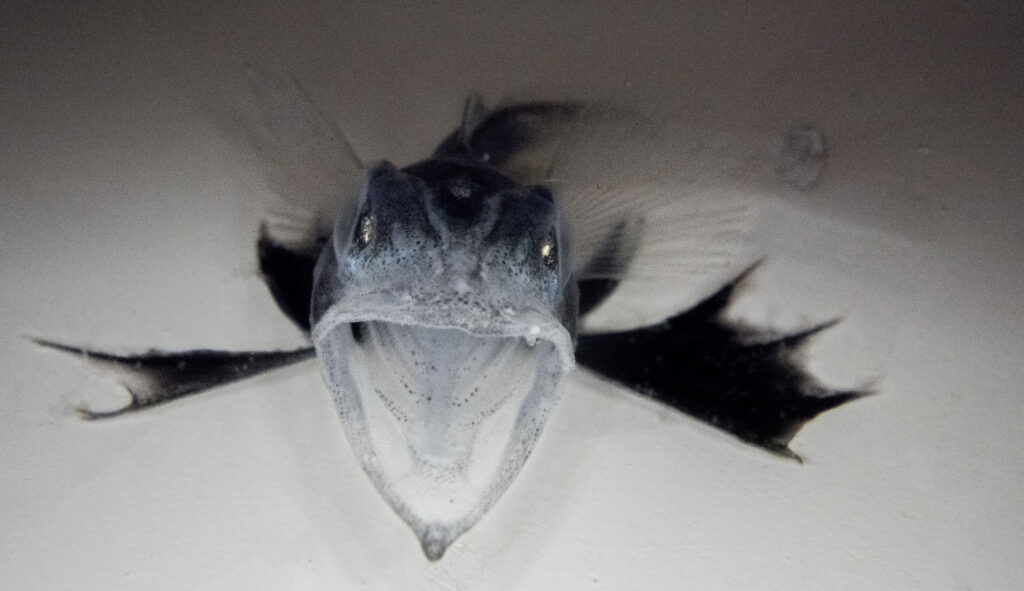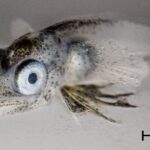I.D. Antarctica #3 – Answer
Hello again! Did you think it was easy or hard to identify our week #3 mystery creature? I hope you enjoyed the challenge! Or did it make you feel like this fish looks?
Well, the correct answer for the fish identification is…..drum roll….Pagetopsis macropterus (also pictured above). This species is a member of the family Channichthyidae, or the white-blooded icefishes.
As their name implies, icefishes are the only vertebrate in the world that does not have hemoglobin in their blood. In all vertebrate organisms, including humans, hemoglobin is the part of a red blood cell that transports oxygen molecules from the lungs to the rest of the body using a highway-like system called blood vessels. Cells and organs all need these oxygen molecules to function. The hemoglobin protein is essentially what gives blood its red color.
How is it possible these fishes exist and are commonly found throughout the Southern Ocean? Several unique adaptations allow icefishes to live without functioning red blood cells.
Compared to air or warmer water, there are a lot more oxygen molecules freely floating around in the Southern Ocean because it is so cold. Instead of actively transporting oxygen from their lungs to their body parts, oxygen from the ocean directly enters the body of an icefish across their skin. Icefishes have abnormally thin skin that helps with this exchange.
The icefishes have also reduced how much energy they expend on a daily basis. The less energy they use, the less oxygen they need. Therefore, they spend most of their time as adults sitting motionless on the sea floor.
Despite their lack of hemoglobin, icefishes are still vicious predators. They are even referred to as crocodile icefishes due to their appearance and tendency to bite. Larval icefishes consume many different types of zooplankton near the surface. For example, I found three Antarctic krill in the stomach of the icefish pictured above.
I am studying the potential effects of global warming on larval icefishes. Since the fishes rely on extremely cold water to hold enough oxygen, I am concerned with how they will behave as the Southern Ocean warms from climate change. Can you think of any organisms in your state that may also be at risk from global warming?
Check back with me next Tuesday for Mystery Creature #4. We are planning to sample zooplankton that live in much deeper water – down to 1000 meters. We always catch some weird animals at that depth, so I am excited to see what we find!
*Editor’s Note: Your students can explore more data about icefish in Antarctica using the Polar Data Story “As ocean temperatures increase, how will icefish do?” https://polar-ice.org/focus-areas/polar-data-stories/





